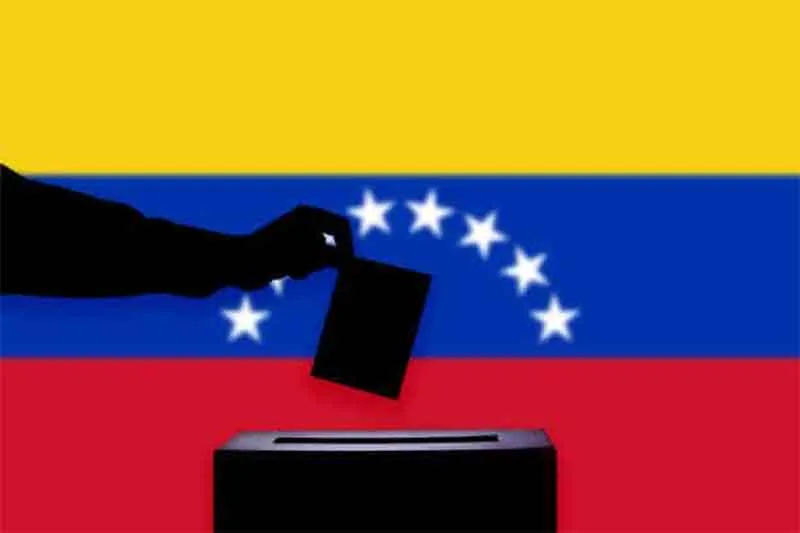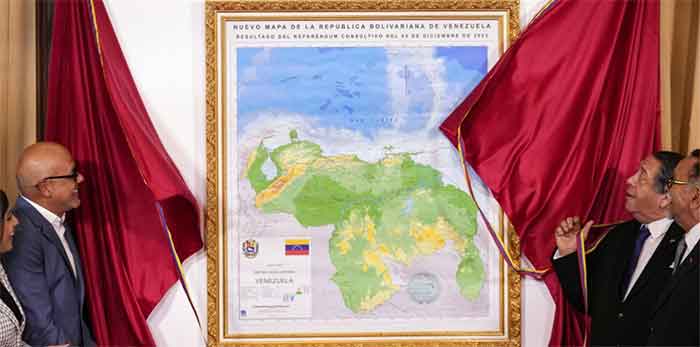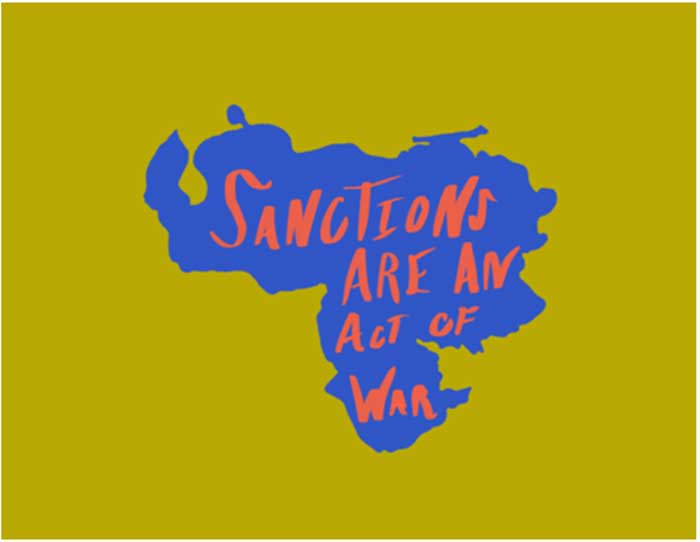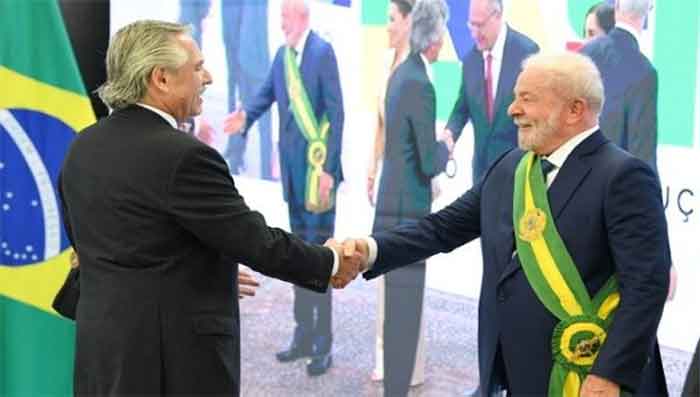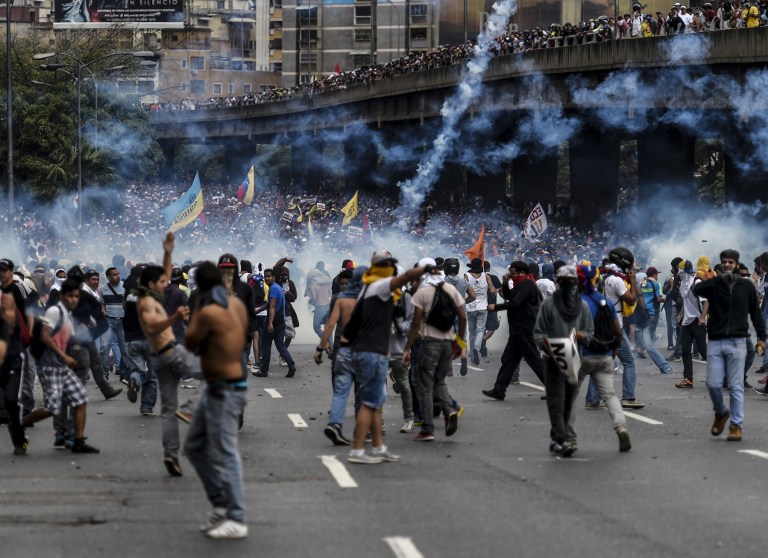
Violence erupted for a third straight day at protests against the government, escalating tension over moves to keep the leftist leader in power. / AFP PHOTO / JUAN BARRETO
The death toll rose to at least 37 Thursday in the nationwide protests and street clashes that have gripped Venezuela over the past month.
The identity of the latest victims reflects the violent and provocative character of the campaign being waged by Venezuela’s right-wing opposition, as well as the increasingly repressive crackdown being carried out by the government of President Nicolas Maduro.
Parallel to this political confrontation playing out in the streets of Caracas and other major cities, the country’s desperate economic crisis has unleashed a growing wave of looting by sections of the oppressed, driven to desperation over the lack of food and declining real incomes.
Hecder Lugo Perez, 22, died Friday after being hit in the head by a projectile in the northwestern city of Valencia, a center of Venezuela’s moribund auto industry and other manufacturing plants that have seen mass layoffs. The city of 1.8 million has been one of the major flash points in the looting that has swept the country, with some 70 stores sacked on Tuesday.
Killed on Thursday was Juan Lopez Manjares, 33, the student federation president at the Instituto Universitario Tecnologico Jose Antonio Anzoategui in the northeastern city of El Tigre. The student leader, a supporter of the government, was gunned down after leading a student assembly, with his assassin fleeing on a motorcycle.
Also reported Thursday was the death of a policeman, Gerardo Barrera, 38, who died from gunshot wounds suffered the day before in a confrontation with demonstrators in the northwestern town of San Joaquin.
The wave of demonstrations was touched off on April 1 after Venezuela’s Supreme Court issued a ruling abrogating the legislative powers of the country’s opposition-controlled National Assembly. The move was part of the attempt by the Maduro government to consolidate power under conditions in which the president and his policies have become deeply unpopular, not only among the well-heeled constituency of the political right, but among far wider layers of working people.
The government was compelled to reverse the measure after coming under significant criticism from within its own ranks, including by the country’s attorney general, Luisa Ortega Diaz, a government loyalist who is married to a legislator of the ruling PSUV. Symptomatic of the continuing internal crises of the Maduro government, and calculations among some of its leading figures that regime change may be near, Ortega intensified her criticisms in an interview with the Wall Street Journal this week, declaring, “It’s time to hold talks and to negotiate. It means one has to yield on decisions for the good of the country.” She also departed from the government’s blaming of all the violence on demonstrators, stating, “We can’t demand peaceful and legal behavior from citizens if the state takes decisions that don’t accord with the law.”
Demonstrations have intensified after Maduro’s announcement that he is calling a “constituent assembly” to make changes to the constitution instituted in 1999 by his predecessor as president, the late Hugo Chavez.
The government has given no clear indication of what it intends to change in the existing constitution, but has made it clear that it intends to pack the body with its own supporters, drawing 50 percent of its members from “social movements,” which are state-controlled, and 50 percent from regional elections.
Maduro has vaguely described the assembly as a path to “peace” and “national dialogue.” The right-wing opposition has charged that it is aimed at circumventing a 2018 presidential election that he would likely lose.
In a May 1 speech, Maduro claimed that the revisions to the constitution would include measures to support the “post-petroleum economy,” an oblique reference to the failure of 18 years of chavista rule to alter Venezuela’s fatal semi-colonial dependence on a single commodity, oil. It is entirely possible that the government aims to invite foreign investors to bid on parts of the state-owned oil industry, PDVSA. Late last year, the government opened up 112,000 square kilometers to open-pit mining in a $4.5 billion dollar deal with transnational mining companies.
Like the attempted suspension of the right wing-led National Assembly, there is nothing progressive about the convening of such an assembly, which will reflect not the will or aspirations of the masses of Venezuelan working people, but rather the political exigencies of the Maduro government and its principal constituencies: the military, functionaries within the state apparatus and ruling party and the boliburguesia, the layer of capitalist investors, contractors and speculators who have enriched themselves under the rule of so-called “Bolivarian Socialism.”
Under Chavez—and thanks to oil prices that topped $100 a barrel—these layers were able to pursue their interests while still providing minimal social assistance programs that reduced poverty and provided housing, health care and improved education to the more oppressed sections of the population. Chavez’s death in 2013, however, was quickly followed by the plummeting of the price of oil, the commodity that accounts for 95 percent of the country’s export earnings. Since then, the economy has contracted by 27 percent, while the inflation rate, the highest in the world, is set to reach 720 percent this year, according to an estimate by the International Monetary Fund.
With vastly reduced export earnings, the government has slashed imports of foreign food, medicine and other basic necessities in order to divert dwindling reserves to meet foreign debt payments to international finance capital.
Venezuelan working people have borne the terrible burden of paying off Wall Street. Four out of five people now live in poverty, and masses are facing hunger. Recent surveys have found that nearly a third of the population now eats two or fewer meals a day—compared to 12.5 percent in 2015—and three out of four Venezuelans had lost on average 19 pounds last year.
In the face of the right-wing campaign to topple his government, on the one hand, and growing social unrest and class tensions, on the other, Maduro has turned increasingly to the military, which has always served as the principal pillar of the movement founded by Hugo Chavez, himself a former paratrooper colonel who led an unsuccessful coup in 1992.
Military officers now head up a third of the government’s ministries and make up half of the country’s governors. Key areas of the economy, including those where the most money is to be made off of corruption, have been placed under military control, including ports, food distribution and the control of foreign exchange.
Under a decree known as Plan Zamora, the Maduro government has essentially arrogated to itself the power to impose martial law, while bringing the police under the control of the Bolivarian National Guard (GNB). On Thursday it was announced that “70 vandals” arrested during a wave of looting in the state of Carabobo will be brought before military tribunals to face charges of looting and “rebellion.”
The right-wing opposition is appealing increasingly to the military to overthrow Maduro in a coup under the pretext of defending the constitution. Venezuelan right-wing opposition leader and former presidential candidate Henrique Capriles, who has demanded that the military “intervene,” claimed on his Twitter feed Friday that “85 officers of our FANB (Bolivarian National Armed Forces)” had been arrested for “having manifested their discontent.”
The New York Times, which openly supported the CIA-backed abortive coup against Chavez in 2002, published an opinion piece this week by a Venezuelan journalist, who assessed that “the possibility of a negotiated transition satisfactory to the opposition is negligible,” adding that “the alternative would be a military intervention to install a national unity government.”
Meanwhile, one of the biggest holders of Venezuelan bonds has made it clear that his firm is betting on and supporting “regime change.”
“Like most Venezuelans, we would welcome, and ultimately expect a change in regime,” Mike Conelius, who manages the $6.5 billion T. Rowe Price Emerging Markets Bond Fund, wrote investors in an email reported by Bloomberg News. The firm has posted huge profits as Venezuela has repeatedly made interest payments by slashing imports and the living conditions of masses of Venezuelan workers. It expects even richer dividends in the event of a coup against Maduro. “The cathartic moment of regime change will be quickly repriced in the market,” Conelius wrote.
Attempting to place US imperialism’s thumb more firmly on the scale, a bipartisan group of US Senators has urged President Donald Trump to intervene more aggressively against Venezuela. The Senators, who include Democrats like Hillary Clinton’s vice-presidential running mate Tim Kaine of Virginia, introduced on Wednesday the “Venezuela Humanitarian Assistance and Defense of Democratic Governance Act of 2017” to ratchet up sanctions against Venezuela and pressure on its government.
In particular, the legislation calls attention to investments by the Russian energy giant Rosneft in Citgo, the US-based subsidiary of Venezuela’s state-owned PDVSA petroleum company, describing the ties as a “significant risk to U.S. national security and energy security.”
The pursuit of a more aggressive policy against Venezuela, linked to the military buildup against Russia, would be entrusted in large measure to US Secretary of State Rex Tillerson. He is the former CEO of ExxonMobil, whose predecessor company, Standard Oil, controlled Venezuelan oil production for half a century until Caracas nationalized the industry in 1976.
Originally published in WSWS.org

